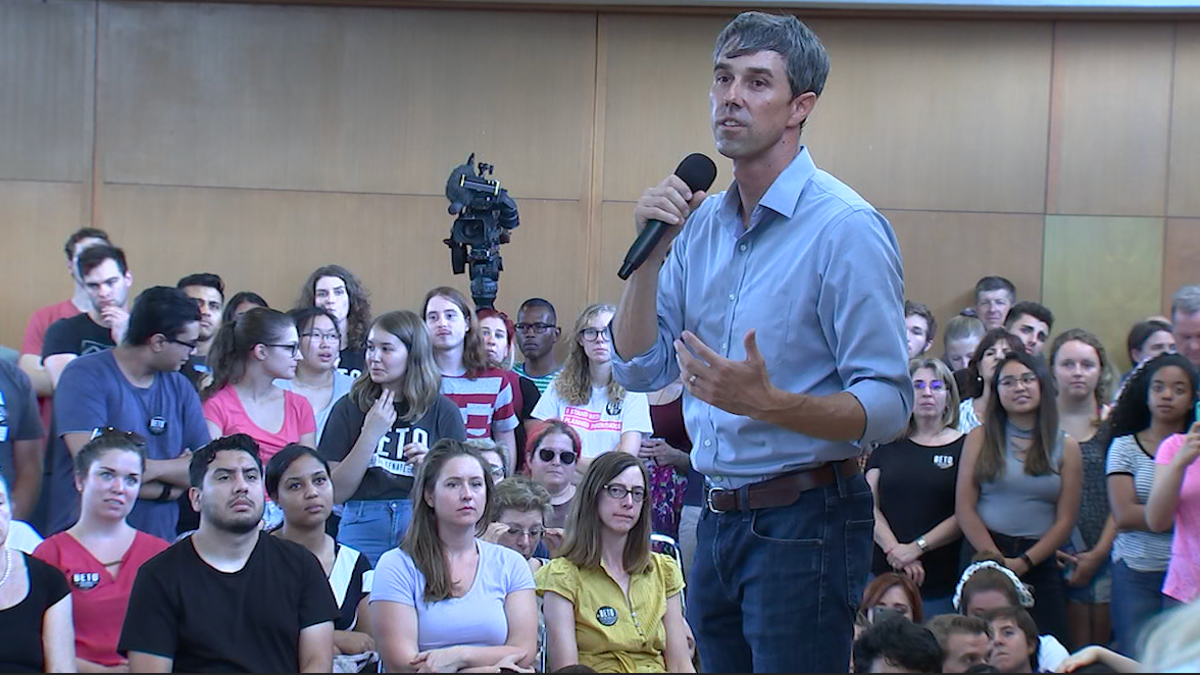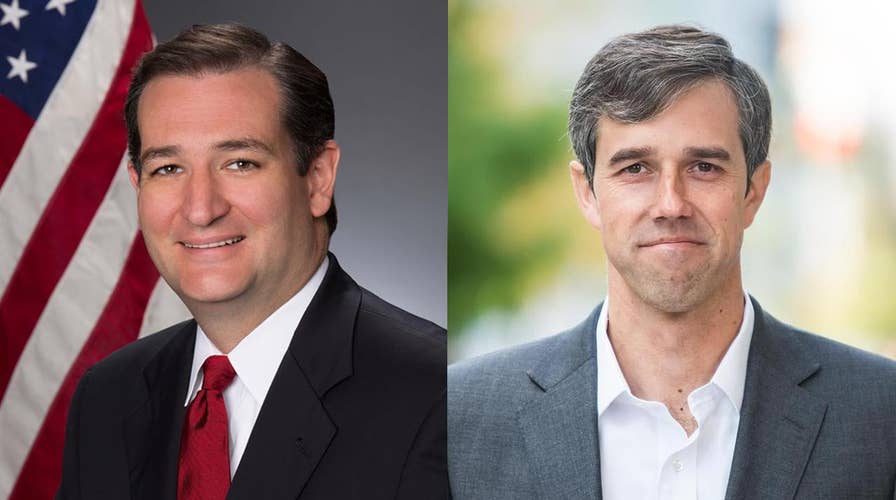Latino vote could be key in Texas senate race
Turnout among Hispanics historically low in Lone Star state
His legal name is Robert Francis O’Rourke, but he goes by Beto, his nickname from his childhood growing up in El Paso, Texas – a border town that is one of the most Hispanic cities in America.
A fluent Spanish-language speaker, he occasionally sprinkles the language in his speeches and talks about inclusion and representing everyone.
“That means going to every county in Texas, but it also means listening and speaking in English y tambien en Espanol,” O’Rourke, a Democrat, said during a rally at Rice University last week.
The El Paso congressman, who is running for a U.S. Senate seat in Texas, is Irish-American but is trying to mobilize Latino voters in a Republican-leaning state with a large Hispanic population.
“I think I have never seen something in Texas where one candidate is so popular, particularly among young people,” said Carlos Duarte, Texas state director for the non-partisan non-profit organization, Mi Familia Vota. “I think using his nickname, Beto, has really connected with Hispanics. But, I think he has also invested the time, visiting people, doing the ads targeting the Latino community.”

Democratic Congressman Beto O'Rourke says he addresses crowds in English and Spanish because he wants to make sure everyone is represented. (Fox News)
One of O’Rourke’s challenges: He’s running against Cuban-American Texas. Sen. Rafael Edward Cruz, a Republican who ironically goes by his nickname, Ted, for a seat that Cruz has held since 2013.
O’Rourke has been receiving national attention and has been called “Kennedyesque,” but experts say if he wants to stay competitive in the race he has to energize Latino voters, who in Texas have traditionally failed to show up to the polls on Election Day. A recent Quinnipiac poll shows Cruz leading the Senate race by 9 points, but O’Rourke holds a 24-point lead among Hispanic voters.
Texas has routinely ranked near the bottom for voter turnout, and census data shows only 40 percent of Hispanics voted during the 2016 presidential election.
“The belief [is] that the more Latinos who are not regular voters turn out, the smaller the proportion of Latino votes that Republicans [will] win,” said Mark Jones, a political science fellow at Rice University’s Baker Institute.
Cruz has mocked O’Rourke’s effort to appeal to Latino voters, suggesting the congressman is trying to deceive them.
"Liberal Robert wanted to fit in, so he changed his name to Beto and hid it with a grin," said a Cruz campaign jingle.

Sen. Ted Cruz, who recently released a digital Spanish ad, says Hispanics in the Lone Star state are conservative. (Fox News )
O’Rourke has pushed back from the criticism. Earlier this year, he released an Instagram post with a photo of him as a child wearing a sweatshirt that had his nickname, Beto.
"My parents have called me Beto from day one, and it's just -- it's kind of a nickname for Robert in El Paso. It just stuck," he told CNN in an interview.
Cruz has also made an effort to appeal to Latino voters. Last Friday, he released a Spanish-language ad featuring his father’s escape from Cuba.
But Cruz's hardline stance on immigration has turned off some Latino voters, according to Duarte.
“Because he has this Latino last name, they think, ‘OK, so he’s Latino so I should be voting for him,’” Duarte said. “[But] they oppose a border wall, they really hate the situation of the separation and incarceration of families at the border, and definitely the support for Dreamers is in the minds of a lot of young people.”

Canvassers are hitting neighborhoods throughout Houston, reminding residents to vote. Census data shows only 40% of Hispanics voted during the 2016 presidential election. (Fox News)
Duarte said O’Rourke is drawing support among Latinos because he favors a more sympathetic stance toward undocumented immigrants – he opposes the border wall and supports Dreamers.
"It's clear Beto is gaining a lot of ground with the Latino community,” Duarte said.
Cruz, however, is not buying it.
“The Hispanic community in Texas, our community, is a conservative community. The values we believe in are faith, family and patriotism,” Cruz told reporters during a rally in Houston last week.
About 28 percent of eligible voters in Texas are Hispanic, the second largest Hispanic statewide eligible voter share nationally, according to Pew Research Center. Pew says about 21 percent of Texas' population who are Republican or lean Republican are Hispanic and 37 percent of the population who are Democratic or lean Democrat are Hispanic.
The state’s Democratic Party said Hispanics are a part of the electorate that it is trying to reach.
“This cycle, Latinos are the primary target for our candidates to engage with at every level of their campaigns,” party officials said.
The Republican Party of Texas, meanwhile, said its message connects with the community.
“[Our] pro-life, fiscally conservative message resonates,” the party said, “…not just with Hispanic voters, but with all Texans.”





